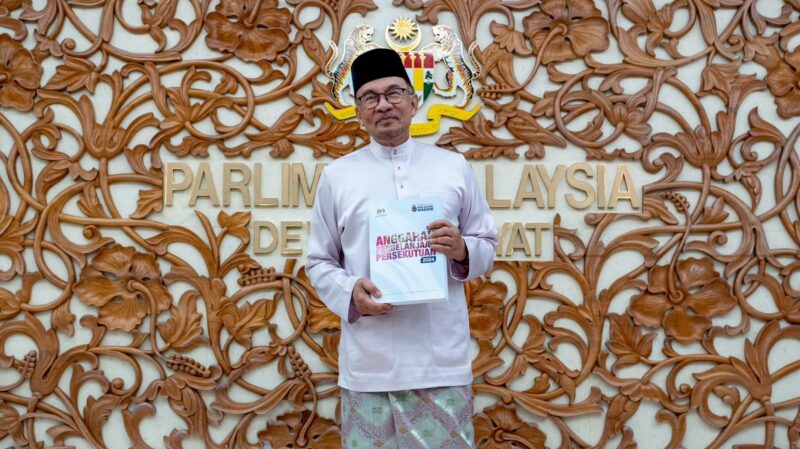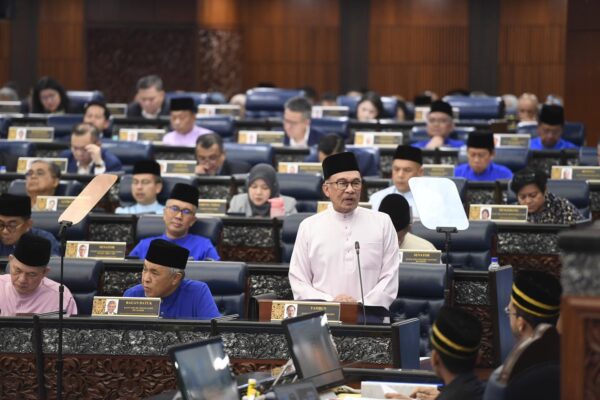
This site
is mobile
responsive

Malaysia’s 2024 National Budget, unveiled on 13 October 2023 introduces a strategic roadmap under the MADANI Economy Framework. This visionary budget charts a new course for sustainable economic growth and aims to elevate the standard of living for Malaysians. Let’s delve into the key highlights and initiatives that define this transformative fiscal plan.
One of the key highlights of the 2024 National Budget is the extension of Ministry of Investment, Trade and Industry (MITI) and MIDA’s roles in facilitating both foreign and domestic direct investments, with a targeted focus on high-growth, high-value industries. The formation of the Investment and Trade Coordination Action Committee (JTPPP) adds a streamlined approach to investment-related processes reporting directly to the National Investment Council (MPN), chaired by YAB Dato’ Seri Anwar Ibrahim, the Prime Minister of Malaysia.
Aligned with the National Energy Transition Roadmap (NETR) and the New Industrial Master Plan (NIMP) 2030, the budget introduces initiatives to incentivise companies in transitioning to a low-carbon economy. Tax incentives aim to spur investments by both new and existing companies, propelling Malaysia towards its goal to becoming an inclusive, sustainable, and carbon-neutral nation by 2050.
A significant allocation of RM200 million or 10 percent of the NIMP 2030 total investment for 2024, emphasises the government’s commitment to spur high-value activities. A reinvestment tax incentive encourages existing companies to reinvest in high-value activities, employing a tiering mechanism in the form of investment tax allowance of either 60% or 100% for a period of 5 years starting from 1 January 2024 until 31 December 2028. These efforts aim to encourage diversification, automation, and modernisation into high-growth, high-value sectors, leading to new economic clusters and enhanced domestic networks with balance economic sustainability.
The budget underscores the importance of the Global Services activity within NIMP 2030. The introduction of the Global Services Hub Incentive aims to maintain Malaysia’s competitive edge, offering tax rate incentives for services and trading income. This initiative adopts an outcome-based approach, with income tax rates of 5% or 10% for up to ten (10) years. Additionally, a 15% income tax rate is provided for three (3) consecutive years of assessment to non-citizen individuals in key/C-Suite positions with a monthly salary of at least RM35,000. Applications for this incentive can be submitted to MIDA from 14 October 2023 until 31 December 2027.
To boost investments in high-value activities a new tax incentive package is introduced for the Pengerang Integrated Petroleum Complex (PIPC) enhancing its competitiveness. Additionally, a high-tech industrial area in Kerian, Northern Perak will be developed to strengthen electrical and electronics (E&E) industry ecosystem cluster in the northern region.
In line with environmental commitments, the Government has enhanced the Green Technology Incentive, introducing a tiered approach. New qualifying activities such as Green Hydrogen, Electric Vehicle Charging Stations, and Wind Energy are included to support Malaysia’s journey towards achieving net-zero greenhouse gas emissions by 2050.
Applications for the Green Investment Tax Allowance (GITA) Project for business purposes and Green Income Tax Exemption (GITE) Solar Leasing can be submitted to MIDA from 1 January 2024 to 31 December 2026. For GITA Asset for own consumption, applications can be made to the Malaysian Green Technology and Climate Change Corporation (MGTC) within the same timeframe.
In response to global tax standards, Malaysia plans to implement the global minimum tax (GMT) in 2025. This move aims to curb tax base erosion activities and prevent profit transfers to low tax jurisdictions. Investors are encouraged to prepare for this global taxation standard, showcasing Malaysia’s commitment to international fiscal responsibility.
The 2024 National Budget exemplifies Malaysia’s commitment to the MADANI Economy framework, striving to position the nation as a regional economic champion while prioritising the well-being of its rakyat. With a strong focus on job creation, and enhanced living standards, this budget sets the stage for a promising and prosperous future for the country and all Malaysians.
